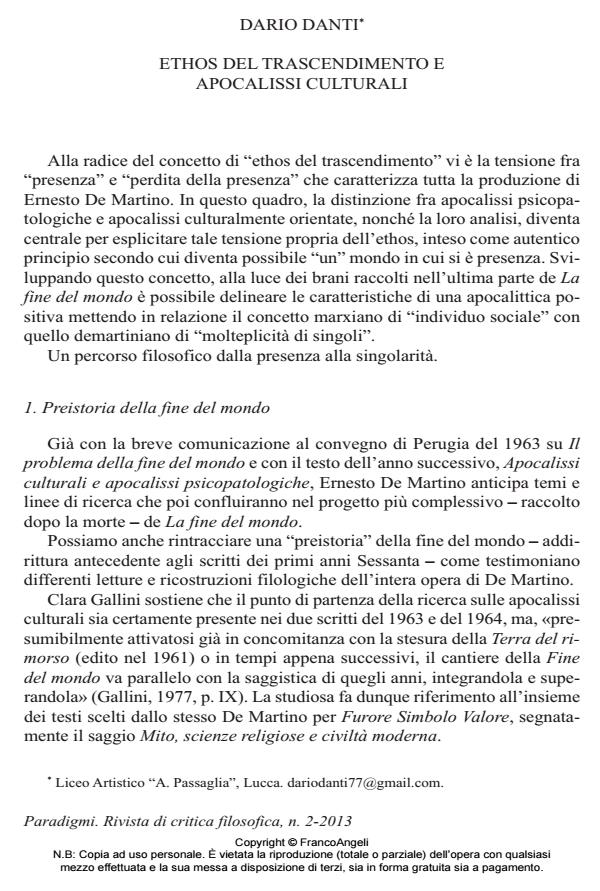Ethos of Transcending and Cultural Apocalypses
Journal title PARADIGMI
Author/s Dario Danti
Publishing Year 2013 Issue 2013/2
Language Italian Pages 15 P. 93-107 File size 113 KB
DOI 10.3280/PARA2013-002008
DOI is like a bar code for intellectual property: to have more infomation
click here
Below, you can see the article first page
If you want to buy this article in PDF format, you can do it, following the instructions to buy download credits

FrancoAngeli is member of Publishers International Linking Association, Inc (PILA), a not-for-profit association which run the CrossRef service enabling links to and from online scholarly content.
The author aims at delineating the concept of "ethos of transcending" in Ernesto De Martino connecting it to the theme of "apocalypses". The reference text are the materials collected in The end of the world. The essay deals with the tension between "presence" and "loss of presence": in this regard the distinction between psychopathological apocalypses and cultural-oriented apocalypses becomes fundamental to clarify this tension typical of ethos. After all, our analysis is based on the search for a lay and positive possible apocalypse, bringing about a new escaton in order to open up the future to an authentic intersubjectivity of every singularity.
Keywords: Apocalypses, crisis, ethos, presence, singularity, world.
Dario Danti, Ethos del trascendimento e apocalissi culturali in "PARADIGMI" 2/2013, pp 93-107, DOI: 10.3280/PARA2013-002008